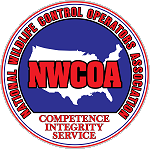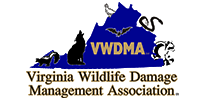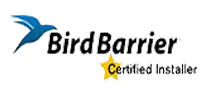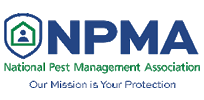Your Wildlife Professionals, Inc. provide resident geese removal in Virginia.
Resident geese have established local, non-migratory populations throughout Virginia. At one time geese were just a frequent visitor during the winter in their migratory route. Now they have taken up permanent residence in local lakes and ponds, parks, and golf courses. These local geese populations can damage and destroy agricultural crops and pose social problems in urban areas by nesting, feeding and defecating in the landscapes and lawns. Their droppings become unacceptable to people that frequent local parks and golf courses. There is a constant debate over the health issues with these droppings, in that there is not a direct link to any disease that can be contracted directly from them, but may lead to disease or parasite growth in the water where people swim. The droppings are unsightly and will gather on the shoes of the individuals walking around the parks or golf course greens. The defensive nature of nesting geese poses a threat to people that may get to close. The geese will often defend their nest by chasing anybody away that may threaten it. Some local lakes, parks, and golf courses have posted bans with fines on feeding the resident geese to help prevent people from being discouraged from using them.
Your Wildlife Professional will design a geese control or removal program that best fits your needs and most importantly your budget. Understanding a geese biology or behavioral patterns, size, and reproductive rates is the most important factor in determining the proper bird control product to use. Some bird control products are species-specific, while others can deter a range of species. FlightControl® PLUS is our go to product that will deter geese, without having to physical remove the geese. Resident geese are protected in Virginia and by the federal government, which means that we cannot start your geese management program during the nesting period or while flightless young are on your property.
Other Goose Removal Options
There are three other options that can be effective in removing resident Canada geese, habitat modification, physical removal, and harassment. A permit through U.S. Fish and Wildlife Services is needed in order for anybody to remove Canada geese because they are still considered a migratory bird. Federal law prohibits individuals from possessing, transporting or handling migratory birds without a permit. The most common technique used in physically removing geese is a round-up. Round-ups are typically performed in June or July when the geese are in their summer molt. At this time the geese cannot fly and will congregate in large numbers close to water to easily escape danger. Their inability to fly makes capture into funnel like traps easy. The second method is harassment. Harassment is the first method that must be tried before actual physical removal can be used. There are a number of ways to harass geese, but the most effective is a trained dog that patrols the area and that will chase the geese away. Habitat modification can be very effective if the end result makes the areas that the geese reside in less desirable to them for food and nesting.
Your Wildlife Professionals, Inc., can design a geese control, geese removal, or get rid of geese by treating the turf area with FlightControl® PLUS to remove pest geese in the counties, cities and towns of Alexandria, Arlington, Bedford, Blacksburg, Bristol, Charlottesville, Covington, Chesapeake, Danville, DC, District of Columbia, Fairfax, Fredericksburg, Hampton, Harrisonburg, Lexington, Lynchburg, Loudon, Manassas, Martinsville, Newport News, Norfolk, Richmond, Roanoke, Smith Mountain Lake, Staunton, Virginia Beach, Washington D.C., Waynesboro, Williamsburg, Winchester, Wytheville, and Yorktown Virginia. For a FlightControl® PLUS treatment quote or other geese removal options, please contact Your Wildlife Professionals, Inc. for a bird consultation.
​CLICK HERE to find Your Wildlife Professional in Virginia.









